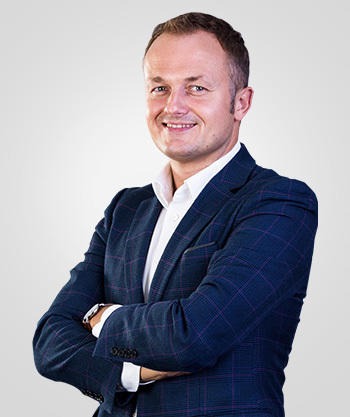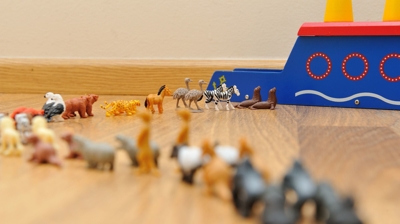I don't believe in training.
I have been working in sales for 10 years - as a salesperson, manager, trainer and consultant - and although I am a trainer myself, I constantly say: I do not believe in sales training.
Trainings can be a fantastic intellectual adventure and a great social experience: a captivating instructor, an inspiring topic, a great atmosphere... They can make you connect the dots in your head, make you realize your own shortcomings and incompetencies, and even give you an impulse to change. This is undoubtedly their great value! And they can be organized for this purpose.
However, to expect a real change in their skills, habits, and therefore results and sales growth after a one-day training for 40 salespeople is something I call a tax on hope. I pay and expect change. It's like with the gym: I pay a regular subscription fee, so I expect a sculpt, but the fact that I visit it once a quarter is another matter...😊
After a one-day sales training - even the best, valuable and substantive one - only a few percent of participants will try to change their current habits. The rest will say the next day: "He may have talked nicely, but it won't work for us." And either they won't even try, or they will give up after the first attempt, celebrating their failure with a triumphant: "I told you so?"...
The training took place, the employee development budget was used, the salespeople liked it, and the superiors are proud that they invest in their people and provide them with training. Everyone is happy.
But somehow the sales bars don't want to move.
Why are sales training ineffective?
Since we are in the season of football games and football emotions, I will compare sales to football. When the ball flies towards you, you have a split second to decide how to receive it and how to react. On the cage and pass? Header straight into the goal? Or maybe turn around and shoot a flip shot? Debutant football players (i.e. each of us in primary school) shoot whenever they can, or rather - whenever they can. Straight ahead, straight ahead, without a second thought. As best they can. Professional football players have a whole arsenal of possible receptions and plays, developed and consolidated during training. Refined until they become a habit.
It's similar in sales. When a customer raises an objection, you have a split second to react. When he says offensively "The competition has it cheaper", you can respond as you like: discredit the competition {"Sir, it's no competition for us!"), boasting ("You know: either cheap or reliable") or - and this is probably the solution the most common - quickly drop your pants, offering discounts, rebates and other benefits just to attract the customer to your side.
But there is another way. Without countering, without tug-of-war and without dancing as the client plays. You just need to have the right habit. Developed during training and reinforced with constant repetitions. Only he will make the salesperson react to the flying ball "The competition has it cheaper":
“I'm glad you talk about it so openly. Does this mean you have already made your decision?”
or:
“Is there anything else apart from the price that raises your doubts?”
or:
"I admit that if I were in your position and had exactly the same offer, but at a lower price, I would not hesitate and choose the competitor's offer"…
These are just three of at least ten possible ways to play this uncomfortable ball that the Sandler Training methodology offers. The use of each of them depends, of course, on the situation on the pitch and what I want to achieve at a given stage of the conversation with the customer: check the true intentions, deepen doubts, postpone the topic, or maybe push them to make a purchase.
When I talk about these techniques in training, everyone agrees that they are cool. They nod their heads and say, “Great! I'll definitely try!” And then, when I meet them after a few months at another training and try to find out how the implementation went, how the clients reacted, how many times they used the tools they learned, the room usually becomes quieter and everyone involuntarily checks whether the floor is well polished... Then quickly they ask what new things we will do today.
People still want to pay new taxes on hope.
People constantly want everything to change in their lives, but on condition that they do not have to change anything in their attitudes, habits and routines.
However, to quench their guilt that they are not doing anything and that they are not developing, people willingly go to training.
But there is a gap between knowing and being able to. And that's why I don't believe in sales training.
New Sales Perspective
At Sandler Training, we always conduct implementation processes that last up to several weeks. For example, Sandler Selling System, Sandler's flagship sales course, consists of 8 full-day workshops that take place at two-week intervals for 3 months so that participants have time for the first failures, corrections and implementation. And in the online version there are as many as 16 weekly workshops

Krzysztof Rzepkowski
Szkoleniowiec, trener, menedżer i mówca z piętnastoletnim stażem jako wykładowca akademicki i wieloletnim doświadczeniem w sprzedaży nieruchomości; autor bloga sprzedażowego na Facebooku „Buty Klienta” oraz prelegent podczas polskiej edycji TEDx. Codzienną porcję energii czerpie z rozwoju i sukcesów ludzi, z którymi współpracuje, dlatego sala szkoleniowa to miejsce, w którym spełnia się bez reszty. Wierząc w nieograniczony potencjał każdego, jest niestrudzonym łowcą wymówek i tropicielem fałszywych przekonań, które podcinają skrzydła w drodze do gwiazd (i dużych pieniędzy…). Wykształcenie: stopień naukowy doktora habilitowanego nauk humanistycznych uzyskany na Uniwersytecie Warszawskim (2017) Związany obecnie z Sandler Polska jako konsultant i szkoleniowiec oraz z Lloyd Group jako menedżer i trener sprzedaży.




